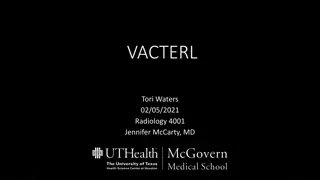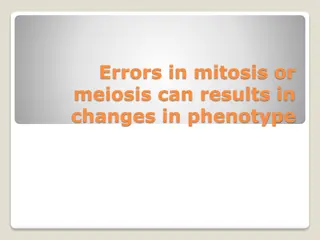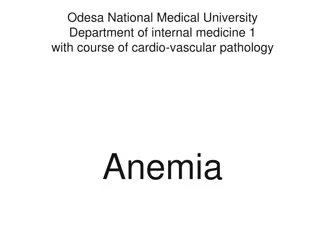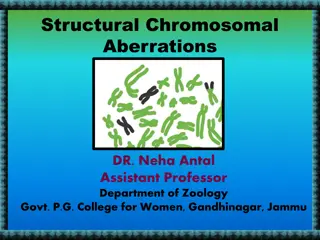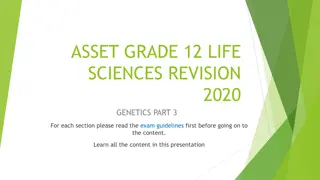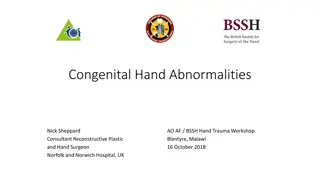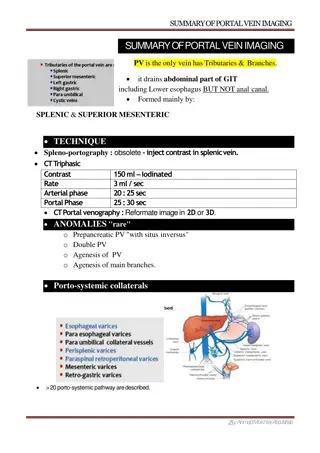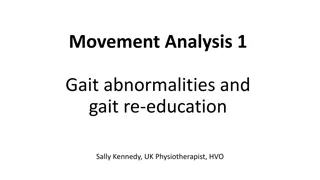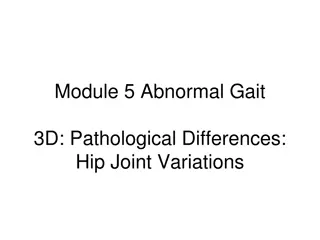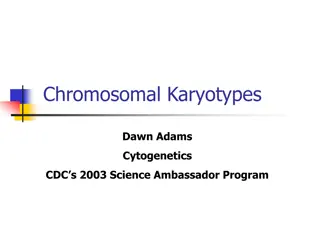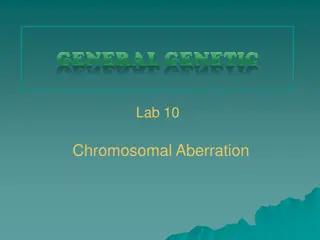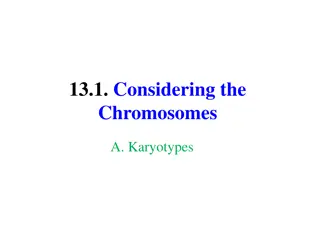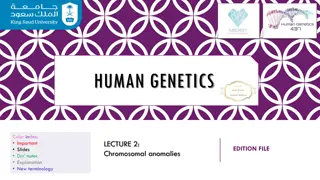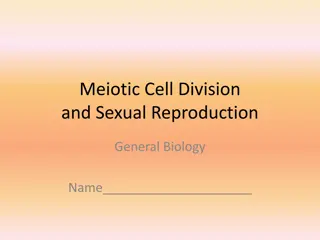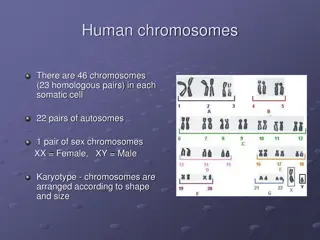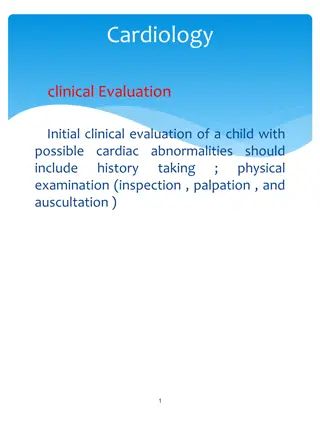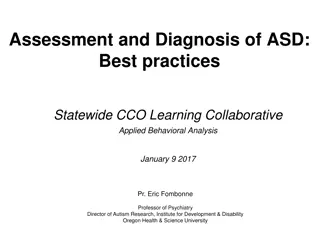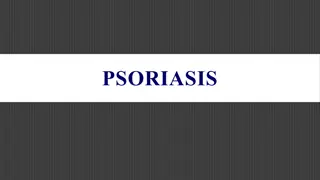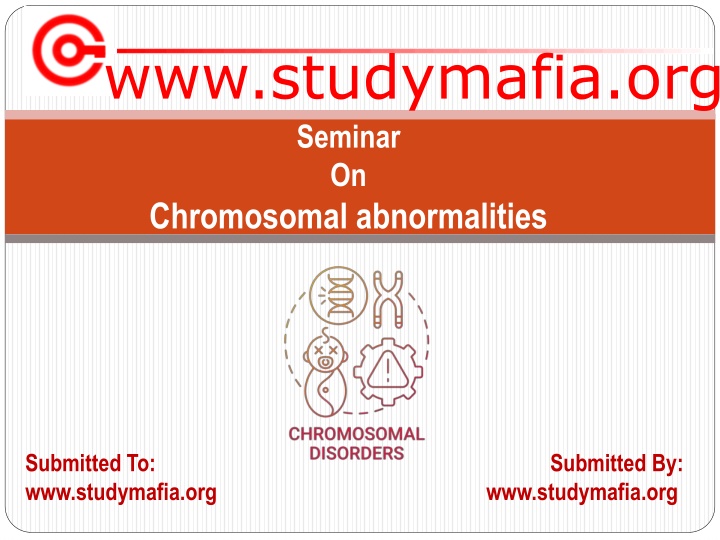
Chromosomal Abnormalities: Types, Causes, and Treatment
Explore the world of chromosomes and chromosomal abnormalities in this comprehensive seminar. Learn about the types of abnormalities, when to suspect them, testing methods, and available treatment options for individuals affected by these genetic conditions.
Download Presentation

Please find below an Image/Link to download the presentation.
The content on the website is provided AS IS for your information and personal use only. It may not be sold, licensed, or shared on other websites without obtaining consent from the author. If you encounter any issues during the download, it is possible that the publisher has removed the file from their server.
You are allowed to download the files provided on this website for personal or commercial use, subject to the condition that they are used lawfully. All files are the property of their respective owners.
The content on the website is provided AS IS for your information and personal use only. It may not be sold, licensed, or shared on other websites without obtaining consent from the author.
E N D
Presentation Transcript
www.studymafia.org Seminar On Chromosomal abnormalities Submitted To: www.studymafia.org www.studymafia.org Submitted By:
Content Content What are chromosomes? Chromosomal Disorders When to suspect it Types of Chromosome Abnormalities Testing for chromosomal disorders Treatment for chromosomal disorders
What are chromosomes? What are chromosomes? Chromosomes are tiny, string-like structures in cells of the body that contain the genes. Each person normally has 23 pairs of chromosomes, or 46 in all.
Chromosomal abnormalities Generally 5-6/1000 the incidence of chromosomal abnormalities. These abnormalities are caused by errors in the number or structure of chromosomes. Many children with a chromosomal abnormality have mental and/or physical birth defects. Some chromosomal abnormalities result in miscarriage or stillbirth. 50% of spontanous abortion are chromosomal abnormal.
Chromosomal Disorders The defects are classified as abnormalities of number or structure and content (autosomes, sex chromosomes) Numerical defects - are abnormalities of the euploid number of chromosomes (46), Examples: trisomy 21 (Down syndrom), trisomy 18, trisomy 13, Klinefelter syndrome (47,XXY) Turner syndrome (45, X)
Chromosomal Disorders The defects are classified as abnormalities of number or structure and content (autosomes, sex chromosomes) Structural defects - result from chromosome breakage and rearrangement. Possibilities include unbalanced translocation, deletion, duplication, inversion, isochromosome and centric fragment. Examples: cri du chat syndrome (5q deletion), Wilms tumor with aniridia (11 q deletion), Prader- Willi syndrome
Single Chromosome Disorders Single Chromosome Disorders Image:Single Chromosome Mutations.png 1.Deletion - portions of the chromosome are lost (genetic material is missing); 2. Duplication - genetic material is present twice; 3. Inversion - parts of the chromosome are flipped (genetic material is flipped )
Two Chromosome Disorders Two Chromosome Disorders ( (Both types are called translocation ) Both types are called translocation ) Insertion Genetic material is added from another chromosome when cells go through meiosis, parts of the chromosomes stick together and switch Translocation Material is swapped with another chromosome
Chromosomal Disorders Chromosomal non-disjunction: when cells go through meiosis the chromosomes don t separate correctly and either too many or not enough are passed on.
Chromosomal Disorders Mosaicism refer to the presence of two or more cell lines with different chromosome compositions in an individual. Mosaicism occurs as a result of chromosomal non- disjunction after fertilization (when cells go through meiosis the chromosomes don t separate correctly and either too many or not enough are passed on). The genetic changes is not carried by parents, so the risk for recurrence of a child with mosaicism is usually negligible.
When to suspect it Unexplained infertility Multiple abortion >2 Prior case of defective baby Presence of congenital anomalies (mental retardation, multiple congenital abnormalities, dysmorphic features) 45% have minor single anomalies 9% 3 minor anomalies 1.5% HAVE major anomaly 2 or more major anomalies may represent genetic syndrome or chromosomal abnormalities
Types of Chromosome Abnormalities Types of Chromosome Abnormalities Monosomy Trisomy Deletion Duplication Translocation Inversion Ring Mosaicism
Testing for chromosomal disorders Testing for chromosomal disorders There are two kinds of testing for chromosomal disorders. They are: Screening tests This test helps to know whether the baby has any kind of genetic disorders or not Diagnostic tests This involves several tests. The results of this help to determine specific genetic disorders.
Treatment for chromosomal Treatment for chromosomal disorders disorders The genetic makeup of a person is affected by chromosomal disorders. Therefore they cannot be restored by any sort of treatment. But there are still some treatments that can help make life easier for individuals with chromosomal disorders. Some of the treatments are physical or occupational therapy, injected growth hormones, and hormone replacement therapies. These will help to treat some of the symptoms of chromosomal genetic disorders and the issues that are connected as well.
Reference Reference www.google.com www.wikipedia.com www.studymafia.org

